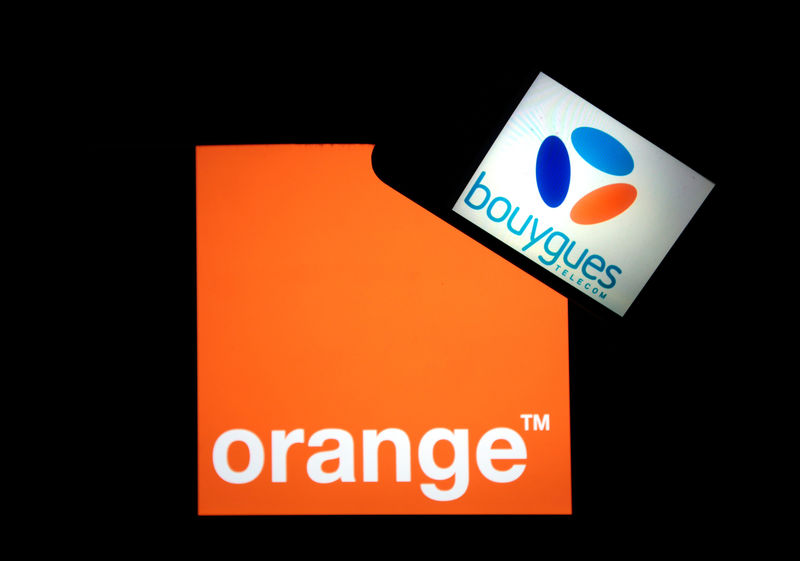By Mathieu Rosemain and Sophie Sassard
PARIS/LONDON (Reuters) - When French Prime Minister Manuel Valls phoned billionaire Martin Bouygues on Thursday evening in an attempt to save a merger between Bouygues Telecom (PA:BOUY) and state-controlled Orange, it was already too late.
The deal would have created the dominant player in an industry damaged by fierce competition, but collapsed on Friday morning with Bouygues deciding not to sell his telecoms business to the former state monopoly even though he had floated the idea himself four months earlier.
The fact Bouygues had confirmed that the unprofitable telecom service provider he founded in 1994 was for sale made his rivals and Economy Minister Emmanuel Macron think the businessman had decided he had no choice but to sell, said four people involved in the talks who spoke to Reuters on Saturday and Sunday.
"It's probably because of this first call that they all tried to rip him apart," one of the sources who is close to Orange (PA:ORAN) said, referring to the French government, which owns 23 percent of Orange, and rivals Iliad (PA:ILD) and SFR (PA:NUME).
For the deal to go through, Iliad and SFR would have had to agree to buy some Bouygues Telecom assets to ease competition concerns.
Spokespeople for the French Economy Ministry, Orange, Bouygues, SFR and Iliad declined to comment for this story.
The weeks of deliberations were the best chance in years to take a contender out of the game and ease competitive pressures that had hammered profits in the industry and drained the capital needed for network investments to better serve an increasingly data-driven economy.
The deal's collapse is a blow not just for the companies but for the French government.
The perception among Martin Bouygues' rivals that they had the upper hand proved decisive on March 24 when a stand-off between the 63-year-old businessman and 38-year-old Macron came to a head and Bouygues stormed out of a meeting at the economy ministry, according to two of the sources.
Bouygues felt humiliated by Macron's demands, said one of the sources, who is a banker. The scene highlighted the rocky relationship between France's Socialist government and Bouygues, who is godfather to a son of former right-wing president Nicolas Sarkozy.
CONTROL OF ORANGE
The complex telecoms merger, whose price tag Bouygues fixed at 10 billion euros ($11.4 billion) in cash and Orange shares, would have made the conglomerate the second-biggest shareholder in Orange after the French state, which would have seen its stake diluted.
For Macron, a former Rothschild & Cie banker, that raised questions about the role Bouygues would play in Orange which owns and manages submarine cables that are central to France's surveillance apparatus, making it a strategic asset for the government.
Macron did not want to be perceived as having let Bouygues gain control. He wanted the government to keep three seats on the Orange board and a blocking minority at shareholder meetings, an idea that Bouygues understood and accepted from the start.
But Bouygues was not happy with Macron's request to cap his potential stake in Orange for seven years and give up for 10 years the double-voting rights he was entitled to as a long-term investor in Orange, three of the sources said
"It's criminal to impose such conditions on Bouygues," the banker said. "It's treating him like a second-class citizen. Any foreign raider who starts buying Orange shares would get better terms."
Macron and his advisers feared that Bouygues would use the same tactic as another French billionaire, Vincent Bollore, whose media company Vivendi (PA:VIV) quietly expanded its stake in Telecom Italia (MI:TLIT) to eventually gain control.
FRICTION
Bouygues himself was not present at the discussions between Orange, Bouygues, Iliad and SFR at the Paris offices of his lawyer Jean-Michel Darrois where about 40 people gathered in the ten days preceding the collapse of the deal.
All four companies wanted an agreement to end their price war.
But the talks soured in the final week, according to several people present, with Bouygues increasingly mistrustful of the two other players Xavier Niel, the founder of Iliad, and the owner of SFR, Patrick Drahi.
Bouygues became increasingly wary of the risks to his interests from the break-up of his telecom assets and the manner of their distribution among his rivals.
Disagreements over break-up fees and the conditions under which each party involved would have been able to withdraw from the deal proved intractable, said several of the sources.
"Niel made concessions but only on the last day," said one of the sources who is close to Bouygues. "He tried to obtain as much as he could."

($1 = 0.8782 euros)